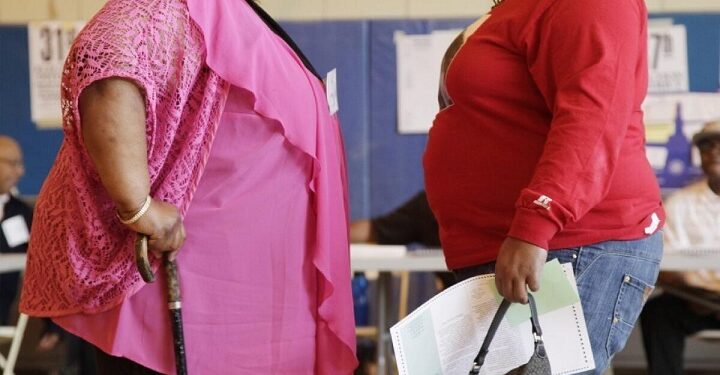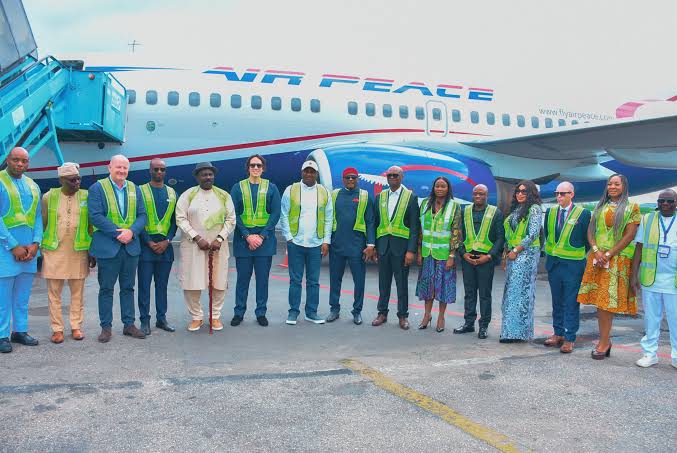
By: Chioma Madonna Ndukwu
US Moves to Bar Overweight Immigrants Amid New Visa Restrictions
The US State Department has introduced new guidance recommending that overweight individuals be denied immigrant visas, marking a controversial move in the administration’s broader effort to tighten immigration rules.
This directive identifies obesity as one of several medical conditions that could render visa applicants a potential financial burden to the US healthcare system.
Other health issues listed include cardiovascular diseases, respiratory illnesses, cancers, diabetes, metabolic and neurological disorders, and mental health conditions.
Officials are instructed to evaluate whether an applicant has sufficient financial means to cover their medical care over their lifetime without relying on public assistance or long-term government-funded care.
Health experts have linked obesity to chronic conditions such as asthma, sleep apnea, and high blood pressure ailments that can require extensive and costly treatment, potentially straining healthcare resources in the US.
Tommy Pigott, a spokesperson for the State Department, told the Daily Mail that the move reflects the administration’s priority of putting “the interests of the American people first,” by enforcing policies that prevent the immigration system from becoming a financial burden on taxpayers.
It’s important to note that this guideline targets immigrant visa applicants, those planning to settle in the US permanently, and does not apply to non-immigrant B-2 tourist visas, which are typically granted to visitors who can afford their own medical care and intend to return to their home countries.
This new health-related restriction is part of a suite of measures aimed at tightening US immigration policies under the current administration, which has also introduced:
A $100,000 annual fee on H-1B visas for skilled workers, payable by sponsoring companies, affecting new visa requests and continuing for up to six years. The US currently caps H-1B visas at 85,000 annually through a lottery system.
A ‘Gold Card’ program designed to fast-track visas for high-net-worth individuals willing to make significant financial contributions, with up to 80,000 such visas expected to be available.
President Trump defended these policies, emphasizing the focus on admitting “great people” who contribute economically.
In addition to health-based restrictions, the administration has maintained a stringent immigration stance, including a full ban on nationals from 12 countries, including Afghanistan, Iran, Libya, and Somalia, and partial travel restrictions affecting visitors from seven other nations.
A senior State Department official summarized the approach: “The Department of State is committed to protecting our nation and its citizens by upholding the highest standards of national security and public safety through our visa process.”
.



 TODAY IN HISTORY – 14th Nov, 2025 – Africa World News
TODAY IN HISTORY – 14th Nov, 2025 – Africa World News  Air Peace Makes History with AerCap Dry Lease of Boeing 737 NG, Boosting Nigeria’s Aviation Reputation
Air Peace Makes History with AerCap Dry Lease of Boeing 737 NG, Boosting Nigeria’s Aviation Reputation  TODAY IN HISTORY – 11th Nov, 2025 – Africa World News
TODAY IN HISTORY – 11th Nov, 2025 – Africa World News  President Muizzu Honours Moosa Anwar for Outstanding Service to Maldives’ Health Sector
President Muizzu Honours Moosa Anwar for Outstanding Service to Maldives’ Health Sector  House committee praises FAAN for fostering safety culture
House committee praises FAAN for fostering safety culture  Hichilema’s Visit to Harare Signals Renewed Zimbabwe–Zambia Cooperation
Hichilema’s Visit to Harare Signals Renewed Zimbabwe–Zambia Cooperation  South Africa Admits 153 Palestinian Refugees After Initial Entry Delay
South Africa Admits 153 Palestinian Refugees After Initial Entry Delay